Home » Physiotherapy » Hip
Hip pain can affect people of all ages — from athletes and gym-goers to those who spend long hours sitting or standing. The hip joint is one of the largest and most powerful joints in the body, allowing for walking, running, and almost every lower body movement. When pain, stiffness, or weakness develops, it can limit your daily activities and reduce your quality of life.
Book a hip physio appointment in Perth online or over the phone at 0493 112 916.
Our physiotherapists use a combination of hands-on treatment, movement retraining, and exercise therapy to relieve pain and restore function.
We take the time to assess your movement patterns, identify contributing factors, and provide a clear plan for recovery.
Your physiotherapist will perform a detailed assessment of your hip, pelvis, and lower back to identify the root cause of your pain. We’ll look at movement patterns, strength, flexibility, and any biomechanical factors contributing to your symptoms.
Hands-on techniques such as joint mobilisation, soft tissue release, and dry needling are used to relieve pain, improve movement, and reduce muscle tension around the hip and pelvis.
Individualised strength and mobility exercises help restore balance, stability, and control. We’ll guide you through a progressive plan tailored to your sport or activity goals.
We’ll help you stay active safely by adjusting your training load, posture, and technique — ensuring you continue to move while allowing your hip to heal properly.
Your physio will analyse how you move during walking, running, or squatting and retrain proper hip and pelvic mechanics to reduce pain and improve performance.
Understanding your condition is key to recovery. We’ll teach you how to manage your symptoms, prevent flare-ups, and maintain long-term hip health.
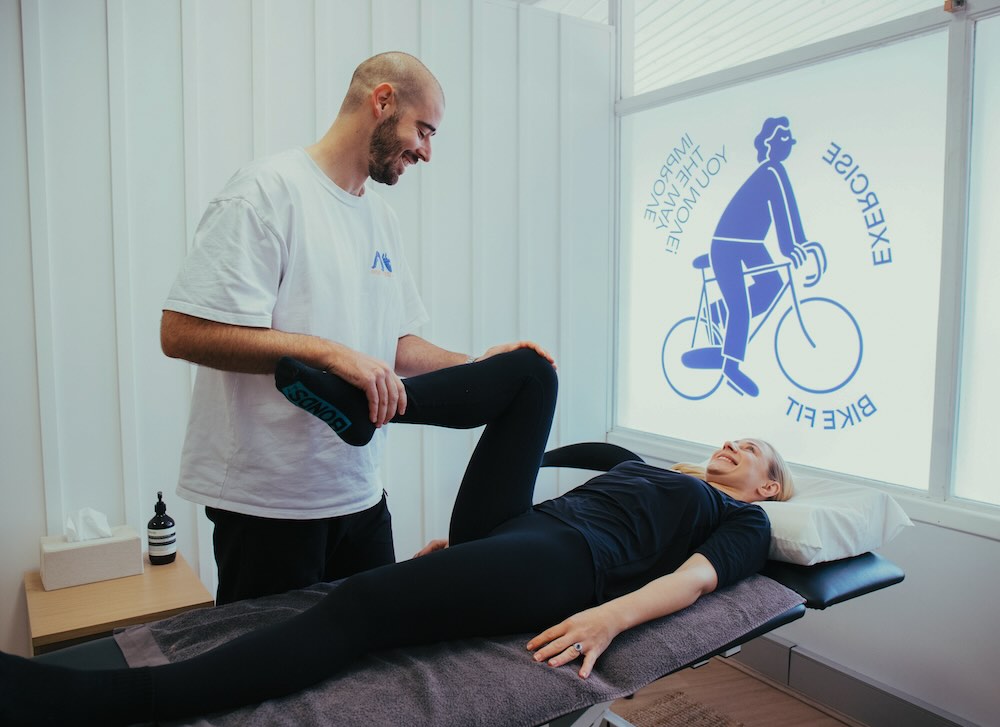
Our small, dedicated team in Perth are experts in hip physio.
Recovering from an hip pain takes more than just time – it requires a structured and progressive rehabilitation plan. We combine evidence-based treatment with tailored exercise programs to help you rebuild strength, stability, and confidence.
Ready to start your recovery?
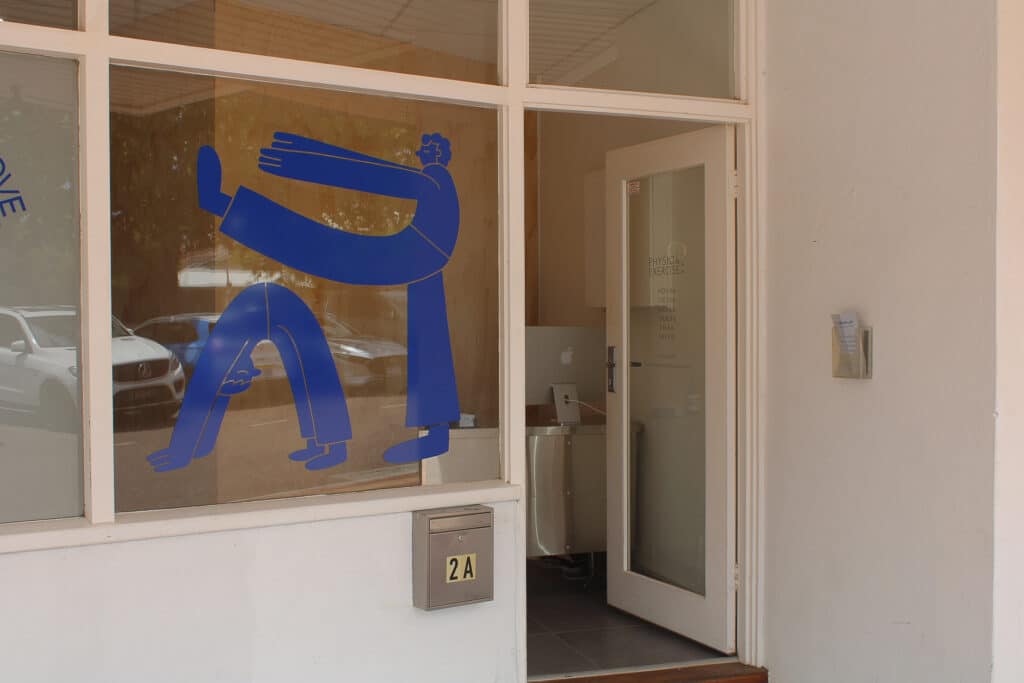
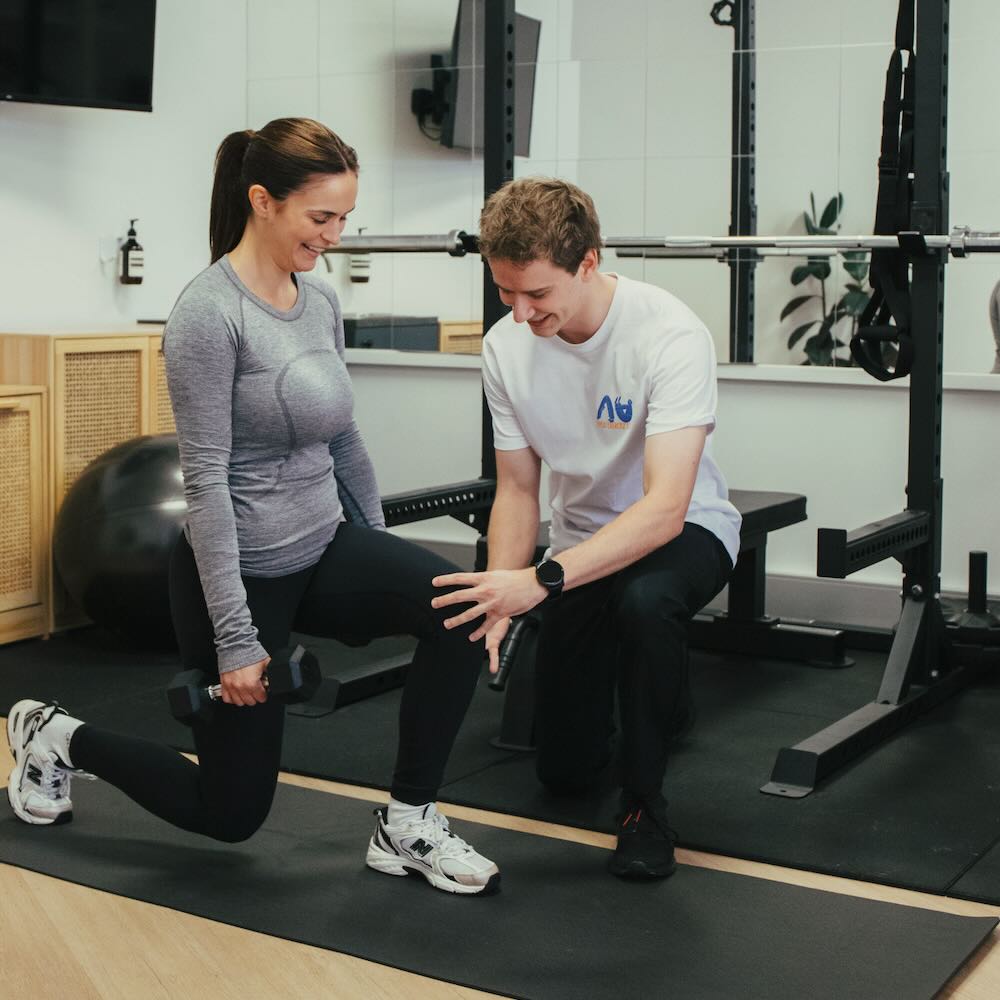
Hip discomfort can come from joint, muscle, tendon, or nerve irritation. Some of the most common conditions we treat include:
Femoroacetabular Impingement (FAI): Abnormal contact between the hip bones that causes pinching or deep groin pain.
Labral Tears: Damage to the cartilage ring that stabilises the hip joint, often resulting in catching, clicking, or sharp pain.
Hip Bursitis: Inflammation of the bursa on the outer hip, causing tenderness and pain when lying on your side.
Gluteal Tendinopathy: Overload or irritation of the gluteal tendons, often causing pain on the outside of the hip.
Hip Osteoarthritis: Degeneration of the joint cartilage, leading to stiffness and reduced mobility.
Muscle Strains: Especially involving the hip flexors, adductors (groin), or hamstrings, common in sports and running.
Referred Pain: Sometimes hip pain is caused by the lower back, pelvis, or sacroiliac joint.
Hip-related pain can vary depending on the structure involved. You may experience:
You should book an appointment with a physiotherapist if you experience:
Early assessment can prevent symptoms from becoming chronic and get you back to doing what you love sooner.
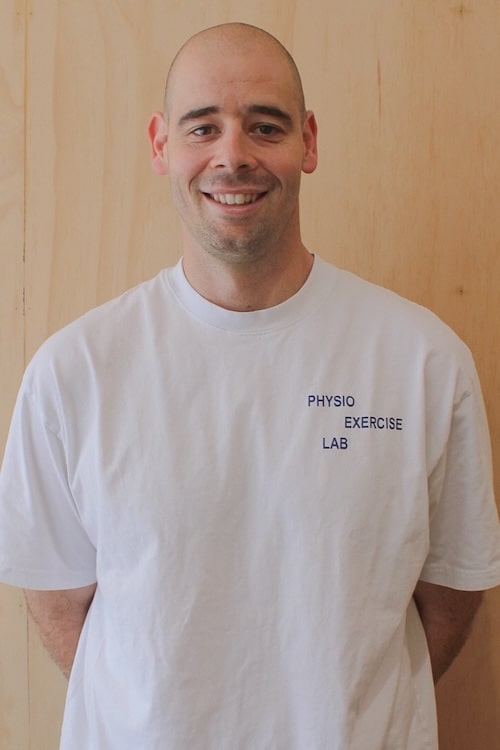
Director & Senior Physiotherapist
James started Physio and Exercise Lab after many years working in private practice; gaining experience in a vast range of sports and musculoskeletal injuries, post-operative orthopaedic rehabilitation, and hydrotherapy. He enjoys treating a variety of conditions coming through the clinic and is skilled in dealing with neck and; back pain, upper and lower limb injuries, vertigo and concussion, functional gym-based strengthening, as well as exercise/load prescription and training planning.
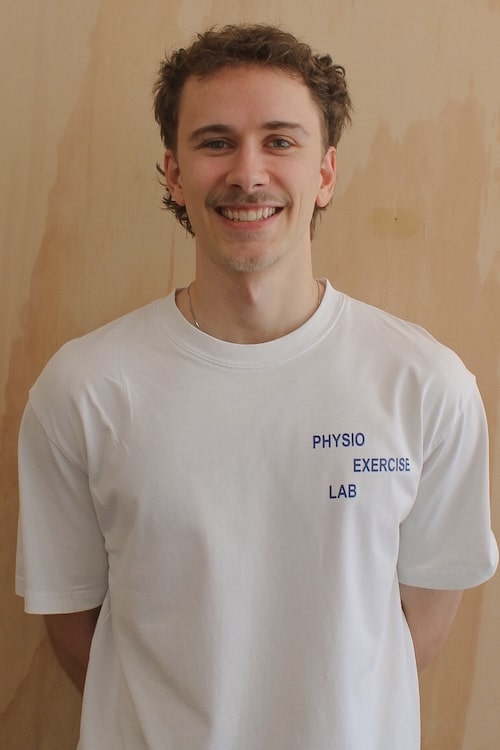
Physiotherapist
Kade has joined Physio and Exercise Lab after working at Albany Health Campus as an inpatient and outpatient Physiotherapist. Whilst working in Albany Kade developed a passion for treating patients with musculoskeletal and neurological deficits and decided to move back to Perth to pursue a career in private practice physiotherapy. Through his time at Albany Health Campus, Kade gained experience dealing in pre and post-operative rehabilitation, and is skilled in treating neck and back, as well as upper and lower limb musculoskeletal conditions.

Physiotherapist
Ella joined Physio and Exercise Lab in 2025 with a background in orthopaedic surgery and musculoskeletal rehabilitation. She has a keen interest in paediatric and adolescent injuries, strength and conditioning, cycling related injuries and functional neurological disorders. Ella also enjoys supporting women and older adults to improve their strength, fitness, and confidence through achievable, goal focused exercise programs. Ella has experience treating a broad range of musculoskeletal conditions and uses a blend of manual therapy, dry needling, targeted exercise rehab, education and strength and conditioning programs to improve patients understanding of their condition, build strength and effectively manage pain.
Hip physiotherapy is a tailored physical therapy approach designed to address and manage conditions affecting the hip joint and surrounding muscles. It aims to alleviate pain, restore mobility, improve strength and function, and enhance overall quality of life through a combination of exercises, manual therapy techniques, and education on self-management and prevention strategies.
Physiotherapy offers several advantages for those experiencing hip problems, including:
We advise you to consult a physiotherapist such as us if you’re experiencing persistent hip pain, stiffness, reduced range of motion, or difficulty with everyday movements such as walking, climbing stairs, or bending. Early intervention can be key in managing symptoms effectively and preventing further complications.
Recovery time can vary widely depending on the nature and severity of the hip condition, as well as the individual’s commitment to their rehabilitation programme. Some may notice significant improvements within a few weeks, while others, particularly those recovering from surgery or with more complex conditions, may require several months of physiotherapy. It’s important to maintain open communication with us and adhere closely to the prescribed treatment plan for the best outcomes.
The initial hip physio session typically includes:
Your second consultation, scheduled shortly after the initial visit, offers an opportunity for feedback and questions. A streamlined re-evaluation is conducted through a physical assessment. Subsequent consultations are geared towards supporting your recovery and achieving optimal outcomes for your pain or injury.
The time frame for improvement varies depending on the individual’s condition and response to therapy. Some may notice improvements within a few sessions, while others might need a longer period of consistent therapy.
Wearing comfortable clothing and shoes that allow for movement is recommended. Review our guide on what to what to wear to a physio appointment for more specific recommendations.
It’s also helpful to bring a list of your current medications and a summary of your medical history, including any diagnostic tests related to your vestibular condition.
There are no cancellation fees or 24-hour notice requirements. Just give us a call if you can’t make it to your appointment.
A doctor’s referral is typically not required to visit us unless your condition is associated with Workers Compensation, Motor Vehicle Injury, Veterans Affairs, or a Medicare Enhanced Primary Care plan. In most cases, you can directly schedule an appointment as all our physiotherapists are primary contact practitioners, capable of providing comprehensive care without the need for a referral.
If you have any questions relating to our services or any feedback for our team, please get in touch with us via phone, email, or contact form.